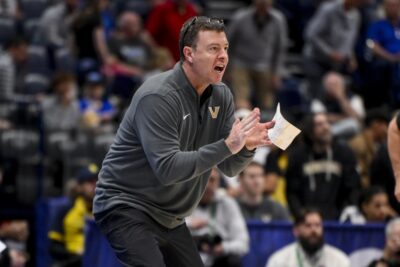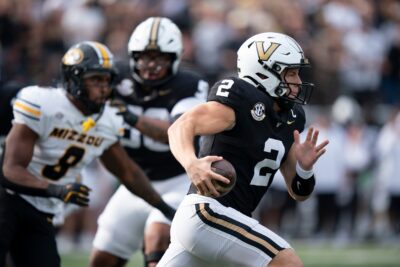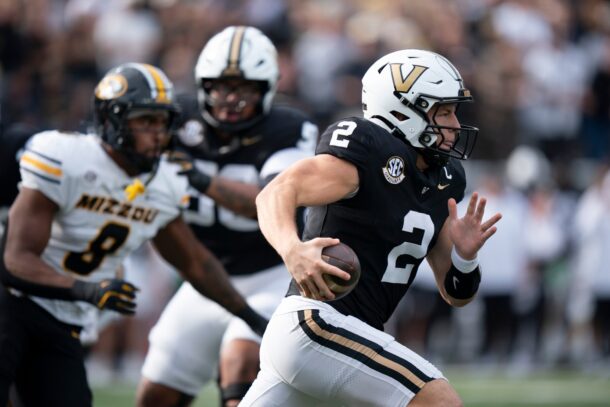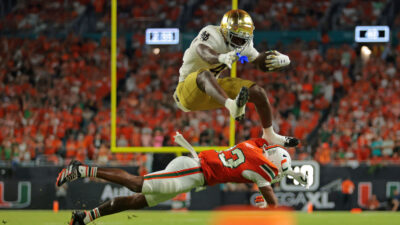A head coach is oftentimes only as good as his staff. In the SEC, home to some of the most respected and decorated head coaches in the nation, that still rings true.
Today, SDS looks at who we deemed to be the top three coordinators in the conference this year, all three of whom fueled their teams to success in 2014.
Lane Kiffin, Alabama
One of the more controversial — or at least surprising — hires of last offseason was Kiffin joining Nick Saban’s staff. Everyone wondered how Kiffin’s West Coast style would mesh with Saban’s buttoned-up offensive philosophies. The answer: brilliantly.
On paper, the results don’t look much different. Alabama actually scored less in 2014 than it did in 2013 and averaged just about 30 more yards of total offense per game. How they did it was far different than prior seasons, though, with Blake Sims and Amari Cooper serving as the main sources of offense rather than a grind-it-out running game.
Of course, Kiffin’s aerial-minded attack did have its drawbacks. The Tide struggled in a few contests in which they relied too heavily on the pass or just couldn’t get the run going, most notably when the offense went through prolonged struggles in the Sugar Bowl against Ohio State.
While there’s nothing wrong with having a powerful rushing attack, a one-dimensional offense isn’t going to cut it anymore in the college football landscape. With the running backs and offensive line recruits Alabama brings in year after year, Kiffin will have the running game at his disposal throughout his tenure in Tuscaloosa. He brings a sorely needed passing dynamic that makes the Crimson Tide as scary as ever.
Robb Smith, Arkansas
Until the final month of the season, it seemed like no one realized just how nasty Smith’s defense was at Arkansas. The Razorbacks made life extremely difficult for every offense they faced, finishing No. 9 in the nation in scoring defense. Smith focused on the basics for the Hogs: strong tackling and keeping big plays in front of them.
It paid off in spades.
Fueled by Trey Flowers, one of the most underrated defensive players in the SEC — are you sensing a theme yet? — Arkansas had one of the stingiest run defenses in the nation, finishing No. 12 in the country with opponents rushing for just 114.6 yards per game. The Razorbacks held Mississippi State and LSU, two of the best running teams in the SEC, to a combined 164 yards, just 36 of them coming from the powerful Tigers.
Arkansas also became the first team in NCAA history to shut out two ranked opponents in back to back weeks when it held LSU and Ole Miss scoreless in a pair of November showdowns.
Smith’s impressive performance didn’t go unnoticed by his athletic department, as he received a contract extension and raise after the season. If his defense repeats its stellar performance in 2015, we’ll start hearing Smith’s name mentioned as a head coaching candidate.
Dave Steckel, Missouri
Missouri lost the SEC Defensive Player of the Year from 2013 in Michael Sam? No big deal, as Steckel churned out a repeat winner in the form of Shane Ray. A member of Gary Pinkel’s staff for 20 years, Steckel gave his best performance yet in 2014, earning the distinction of being a Broyles Award finalist and capping off the year by accepting the head coaching position at Missouri State.
Without Steckel’s aggressive defense, the Tigers would have had no shot at repeating as SEC East champs, which they did despite an offense that could barely muster any production. Mizzou finished 19th in the country in scoring defense, 23rd in total defense, 33rd in takeaways and ninth in sacks. Steckel unleashed a fearsome pass rush featuring Ray and beastly senior Markus Golden, the two engines that powered the Tigers defense.
Perhaps Steckel’s best quality is how much his players simply enjoyed playing for him. When Stec accepted his new position, players raved about how happy they were for him and expressed their disappointment that they wouldn’t be able to play for him anymore. That’s one of the highest compliments any coach can receive.
A former freelance journalist from Philadelphia, Brett has made the trek down to SEC country to cover the greatest conference in college football.







